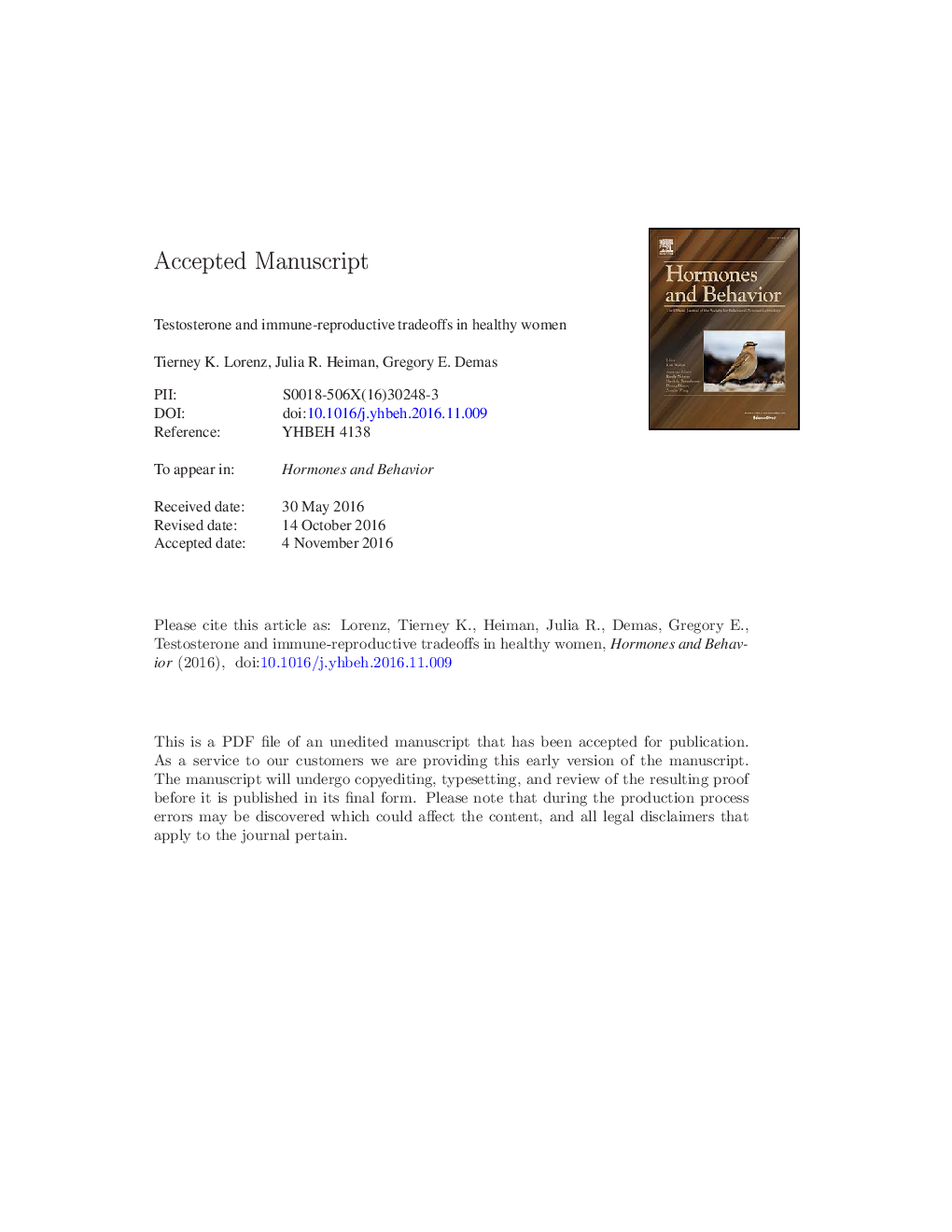| کد مقاله | کد نشریه | سال انتشار | مقاله انگلیسی | نسخه تمام متن |
|---|---|---|---|---|
| 4931210 | 1432752 | 2017 | 42 صفحه PDF | دانلود رایگان |
عنوان انگلیسی مقاله ISI
Testosterone and immune-reproductive tradeoffs in healthy women
ترجمه فارسی عنوان
تستوسترون و تجویز ایمنی تولید مثل در زنان سالم
دانلود مقاله + سفارش ترجمه
دانلود مقاله ISI انگلیسی
رایگان برای ایرانیان
کلمات کلیدی
موضوعات مرتبط
علوم زیستی و بیوفناوری
بیوشیمی، ژنتیک و زیست شناسی مولکولی
علوم غدد
چکیده انگلیسی
Although testosterone (T) has been characterized as universally immunosuppressive across species and sexes, recent ecoimmunology research suggests that T's immunomodulatory effects (enhancing/suppressing) depend on the organism's reproductive context. Very little is known about the immune effects of T in healthy females, and even less about how reproductive effort modulates the immune effects of T in humans. We investigated how the interaction between endogenous T and sexual activity predicted menstrual cycle-related changes in several measures of immunity: inflammation (indexed by interleukin-6, IL-6), adaptive immunity (indexed by immunoglobulin A, IgA), and functional immunity (indexed by bactericidal assay). Thirty-two healthy women (sexually abstinent, NÂ =Â 17; sexually active with one male partner, NÂ =Â 15) provided saliva samples at four points in the menstrual cycle: menses, follicular, ovulation, and luteal phases. Among sexually abstinent women, T was positively associated with IL-6 across the cycle; for sexually active women, however, T was positively associated with IL-6 in the luteal phase only, and negatively associated with IL-6 at ovulation. High T predicted higher IgA among women who reported infrequent intercourse, but lower IgA among women who reported very frequent intercourse. Finally, across groups, T was positively associated with greater bacterial killing at menses, but negatively associated in the luteal phase. Overall, rather than being universally immunosuppressive, T appeared to signal immunomodulation relevant to reproduction (e.g., lowering inflammation at ovulation, potentially preventing immune interference with conception). Our findings support the hypothesis that the immunomodulatory effects of endogenous T in healthy females depend on sexual and reproductive context.
ناشر
Database: Elsevier - ScienceDirect (ساینس دایرکت)
Journal: Hormones and Behavior - Volume 88, February 2017, Pages 122-130
Journal: Hormones and Behavior - Volume 88, February 2017, Pages 122-130
نویسندگان
Tierney K. Lorenz, Julia R. Heiman, Gregory E. Demas,
